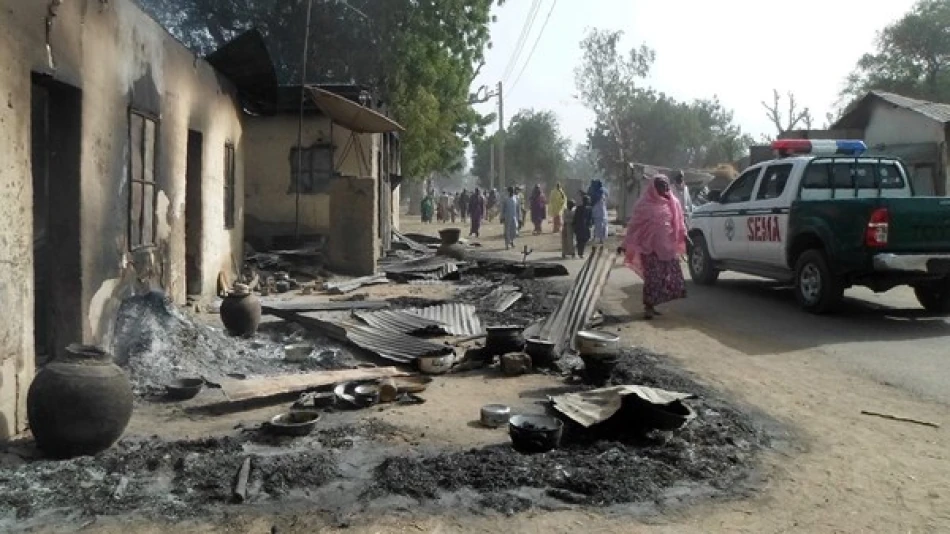
Nigeria: Hostage Massacre Amid Ransom Demands Sparks Outrage
Nigerian Bandits Execute 33 Hostages Despite Receiving $32,700 Ransom Payment
In a brutal escalation of Nigeria's kidnapping crisis, armed bandits in Zamfara State executed 33 hostages after collecting ransom payments, highlighting the deteriorating security situation across Nigeria's northwest region. The mass killing, which occurred despite families paying $32,700 in ransom money, underscores how criminal gangs are operating with increasing impunity in areas where state authority has effectively collapsed.
The Banga Village Massacre
The tragedy began in February when motorcycle-riding gunmen stormed Banga village in the Kaura Namoda area of Zamfara State. The attackers killed two pregnant women during the initial raid and kidnapped 51 residents, including three other pregnant women, according to local witnesses.
Families scraped together ransom payments delivered in two separate installments, hoping to secure the release of their loved ones. However, when only 18 hostages returned to the village last Friday, survivors revealed the grim fate of the remaining 33 captives.
"They took the money we worked so hard to collect and killed 33 hostages, returning only the remaining 18 to us," said Altin Bawa, a local resident whose pain reflects the broader anguish gripping Nigeria's rural communities.
Nigeria's Expanding Security Crisis
The Banga massacre represents a disturbing evolution in Nigeria's security crisis. What began as economically motivated kidnapping has increasingly transformed into indiscriminate violence, even after ransom demands are met. This shift suggests criminal groups are either losing operational discipline or deliberately escalating terror tactics to maximize future compliance.
Geographic Spread of Violence
Zamfara State sits at the epicenter of Nigeria's banditry crisis, but the violence has metastasized across the country's northwest and north-central regions. These areas, traditionally agricultural zones, have become ungovernable territories where criminal gangs operate sophisticated networks spanning multiple states.
The bandits' use of motorcycles for rapid strikes mirrors insurgency tactics, allowing them to exploit Nigeria's vast, under-policed rural territories. Unlike Boko Haram's ideological insurgency in the northeast, these groups are primarily motivated by profit, making them potentially more adaptable and persistent.
Economic and Social Impact
The ransom economy has created perverse incentives that fuel continued violence. While $32,700 may seem modest by international standards, it represents substantial wealth in rural Nigeria, where annual per capita income hovers around $2,000. This disparity makes kidnapping an attractive criminal enterprise while devastating local communities.
Agricultural Disruption
The security crisis has severely disrupted Nigeria's agricultural sector, with farmers abandoning fields or paying protection money to criminal groups. This has contributed to food inflation and increased Nigeria's dependence on food imports, creating a vicious cycle of economic vulnerability.
Government Response Failures
The Banga massacre highlights the Nigerian government's inability to protect rural populations despite repeated promises of military intervention. President Bola Tinubu's administration has inherited a security apparatus stretched thin across multiple conflicts, from Boko Haram in the northeast to separatist movements in the southeast.
Local authorities' reluctance to provide specific casualty figures suggests either poor intelligence capabilities or deliberate information management to avoid public outrage. This opacity undermines public trust and prevents accurate assessment of the crisis's true scope.
Military Limitations
Nigeria's military, while numerically substantial, lacks the equipment and training for effective counterinsurgency operations across vast rural territories. The bandits' mobility advantage and local knowledge often neutralize conventional military responses, requiring more sophisticated approaches that combine security operations with economic development and governance reforms.
Regional Implications
Nigeria's security crisis has regional ramifications, as criminal networks often operate across porous borders with Niger, Chad, and Cameroon. The proliferation of small arms from conflicts in Libya and Mali has armed these groups with military-grade weapons, transforming local criminal activity into quasi-insurgent operations.
The crisis also threatens Nigeria's position as West Africa's economic anchor, as insecurity deters investment and disrupts trade routes. International partners are increasingly concerned about Nigeria's stability, given its role in regional security architecture and global energy markets.
Most Viewed News

 Layla Al Mansoori
Layla Al Mansoori






